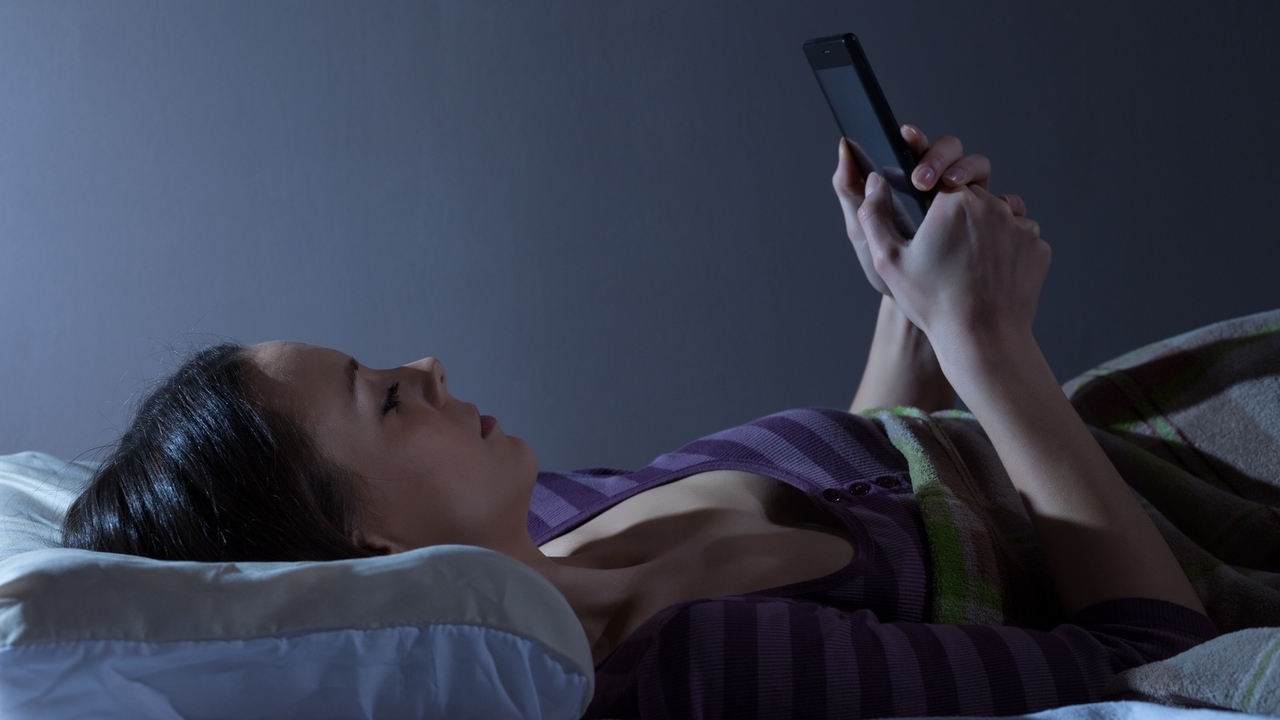 djoronimo/Fotolia
djoronimo/Fotolia
We’ve all had those nights — the ones where we lie awake, looking at the clock, watching the shadows shift on the wall, flipping over and over, feeling like sleep will never come.
Perhaps we are anxious or excited for an upcoming event, or still reeling from some occurrence earlier in the day, and unable to quiet our mind. Maybe we ate or drank something that is keeping our body up — caffeine or sugar, or something else completely.
Or it’s possible that our regular sleep schedule has been disrupted — travel and time change, a long nap in the middle of the day, a lack of exercise.
Whatever the reason, HOPEFULLY these sleepless nights don’t strike you too often.
But what about when they do?
According to the Mayo Clinic, “insomnia is a persistent disorder that can make it hard to fall asleep, hard to stay asleep or both, despite the opportunity for adequate sleep.”
The Sleep Foundation explains that insomnia is characterized by duration — acute insomnia is brief and attributed to life circumstance (like those listed above) whereas chronic insomnia is “disrupted sleep that occurs over at least three nights per week and lasts at least three months.”
I never imagined that my propensity for waking up at 2:45 a.m. every night and being unable to return to sleep for an hour would be categorized as insomnia. But there you go. Apparently, I am one of the 30 percent of Americans that struggle with the condition.
So, what lessons have I learned as an insomniac?
1) Get up! Move and stretch!
Sometimes, lying in bed and attempting to sleep before my mind or body is ready only makes me more restless or antsy. When I get the jitters in bed, sometimes a little physical activity is enough to jog me out of whatever mode is keeping me awake.
I like to get up and do a couple active but calming movements. I choose stretches or exercises that activate my muscles and require some mind-body connectivity, but that won't increase my heart rate greatly.
For example: Flowing through three to five sun-salutations, a yoga movement pattern that you can watch here.
2) Find your own kind of sheep to count.
Everyone has heard that if you can’t sleep, you should count sheep. If you care to read about the origins of this suggestion, check out this article.
As it turns out, a small study in 2002 actually suggests that insomniacs who count sheep stay awake LONGER than those who think about something else. Instead of woolly mammals, consider a different mundane, uninspiring and simple topic that doesn’t necessarily interest or apply to your everyday life.
For example, my mother thinks about the colors she would paint each room in the house (a task she would never actually undertake).
3) The DAY matters, too.
For most of us, lack of sleep can be attributed to certain lifestyle practices or behaviors that affect our daily cycles. If you are struggling with falling asleep, be aware of the kinds of foods or drinks you consume throughout the day.
Limit caffeine and sugar, and try not to have anything within two hours of going to bed.
Furthermore, if your body has been resting all day, it may be ready to move at night! Make sure you schedule time for regular exercise that will get your heart pumping — ideally early in the day, so that you have time to come down from your endorphin high.
Finally, avoid napping or sleeping late in the day. This may seem like common sense, but if you are already sleep deprived, making it to nightfall with no additional rest can be difficult. Set up your schedule so that you aren’t tempted to lie down and rest your eyes until bedtime.
4) Put your screens to bed first.
Many of us are in the habit of sleeping with our phones under our pillows, watching TV or checking emails before climbing into bed.
There have been a slew of studies in the past few years that link screen time before bed with disrupted sleep. The Atlantic published a review of some of these studies, explaining that our screens’ “blue light suppresses melatonin, a hormone that helps with sleep timing and circadian rhythms. At night, our melatonin levels are supposed to rise in anticipation of sleep.”
Furthermore, when we are on alert, waiting for communication from our phones or thinking about a message in our email, our brain is active and less capable of relaxing.
So as HARD as it is to tear yourself away from reading EmpowHER articles at night, turn off the screens at least an hour before bedtime. Remember books? They’re cool.
5) Medication is an option.
For chronic insomniacs or people whose sleep is impacted by medical conditions and/or prescription drugs, sometimes the best and most effective way to combat sleeplessness is truly a sleep-aid medication.
Discuss your options with a health care provider. Remember that there is no need to suffer, and there are many solutions available to you.
6) All things are temporary.
Even though sleepless nights feel never-ending, time ticks on and daylight will come. Moreover, you will not be trapped in a perpetual purgatory of exhausted wakefulness. Your body WILL rest.
So don’t let yourself become more stressed worrying about your disrupted sleep patterns. Keep breathing, and try some of the strategies listed above. Or just accept that you are awake and will have to make more time to sleep the following evening.
What tips do you have for fellow insomniacs? Comment below and let us know!
Reviewed April 1, 2016
by Michele Blacksberg RN
Edited by Jody Smith
“Diseases and Conditions: Insomnia” Mayo Clinic. Website Accessed 3/26/16.
http://www.mayoclinic.org/diseases-conditions/insomnia/basics/definition/con-20024293
“Insomnia”. National Sleep Foundation. Website Accessed 3/26/16.
https://sleepfoundation.org/insomnia/content/what-is-insomnia
“Sleep Scientists Discount Sheep”. New Scientist. Website Accessed 3/28/16.
https://www.newscientist.com/article/dn1831-sleep-scientists-discount-sheep
“Getting Enough Sleep?” Centers for Disease Control and Preventions. Website Accessed 3/27/16.
http://www.cdc.gov/features/getting-enough-sleep/index.html






Add a Comment2 Comments
Can I be kindly informed why my comment on insomnia was not posted!
April 9, 2016 - 1:49amThanks
Maria Jasmine Freeman
This Comment
This a v good article, and a crucial one. Insomnia is extremely hard, driving one to vicious cycle, of sleep counting and insomnia. Your suggested strategies are great for combatting it, however unfortunately often they do not help.
April 9, 2016 - 1:27amI would of course consider organic causes for insomnia, for example a restless leg syndrome from a kidney disorder, sleep apnea and respiratory obstruction, neurological disorders, vitamin or iron deficiencies, endocrine diseases, depression, and more. If evidently none of these exists, ur only option is to resort to ur above-mentioned advice. I would add a little more on it. Since serotonin conduces to sleep, it is advised to increase intake of its precursors, before bed-time; milk, yoghurt, Carbohydrates, bananas, lettuce, dark chocolate.etc..Also, high -Magnesium foods help as to muscle relaxation; bananas, dates, nuts, sesame, dried fruits, and dark chocolate, etc.. Besides, distracting ur thoughts by concentrating on an unusual issue, or repeated words, can help. More, drinking some soporific products, like sage, fennel, mandarins distillate, and anise, n chamomile , are helpful.
Finally, we ought to consider menopause, the great mimimic of any disorder. I grappled for years with horrid insomnia, on account of it, with shivering, shakiness, and much more, and thanks heaven much has gone, but still a milder version remains.
I am ready to tell my story, if of interest, as there is a plethora more to be told.
Maria Jasmine Freeman(Dr Hana Fayyad)
This Comment